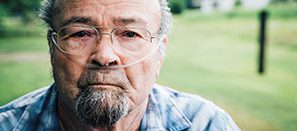Smokefree Homes
There are countless reasons to make your home smokefree. It makes your clothes smell better. It reduces the risk of fire. Most importantly, it protects your family from secondhand smoke, which is proven to cause heart disease, stroke and cancer.
Each year, countless children get pneumonia or bronchitis from breathing secondhand smoke. In pets, it can lead to allergies, skin disease and cancer. The only way to protect your loved ones is by NEVER smoking inside. To learn how secondhand smoke affects children, click here.
Multi-unit Housing
Secondhand smoke is a serious health issue in multi-unit housing. No matter how smokers and nonsmokers are separated, everyone is exposed. Expensive ventilation and filtration systems can’t eliminate the threat. Secondhand smoke spreads through:
- Ventilation and forced air systems
- Doors and windows
- Electrical outlets
- Cable and phone jacks
- Ceiling fixtures and crawl spaces
- Gaps around sinks, countertops, cabinets or walls
- Neighbors’ balconies and common areas
Tobacco-free policies protect residents, reduce insurance costs and save thousands in maintenance expenses. For more information on smokefree housing, click here.
Public Housing
Beginning July 31, 2018, public housing authorities fully funded by the U.S. Department of Housing and Urban Development (HUD) must be smokefree. The ruling will not only protect children and vulnerable families and adults from secondhand smoke, but also will help reduce smoking among groups who smoke at high rates and suffer the greatest burden of tobacco-related death and disease.
The federal rule prohibits smoking in individual living units, common areas, administrative office buildings and outdoor areas within 25 feet of an entrance. While the rule does not include electronic cigarettes, some public housing agencies have also chosen to adopt policies that provide this additional protection for residents. For more information on smokefree public housing, click here.

Secondhand Smoke and Pets
Secondhand smoke isn’t just a problem for humans. It can have devastating effects on your pets too. Secondhand smoke can lead to allergies, skin disease and cancer in dogs, cats and even birds. It can also harm their brain, nervous system and heart. Pets are like family. Treat them that way. Keep them safe by keeping your home smokefree.











